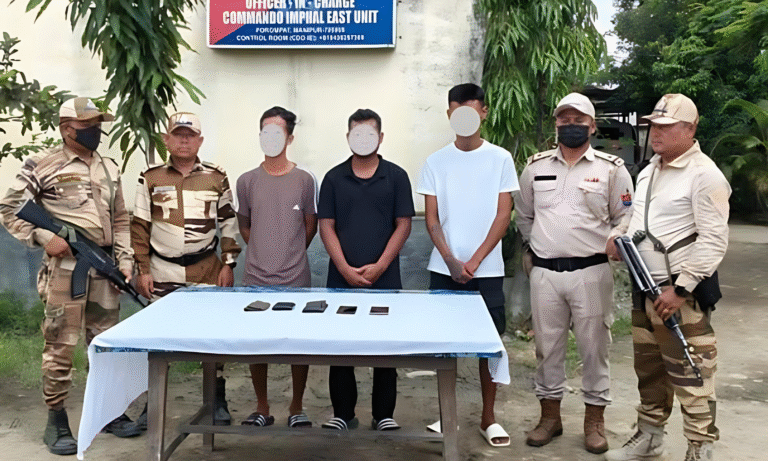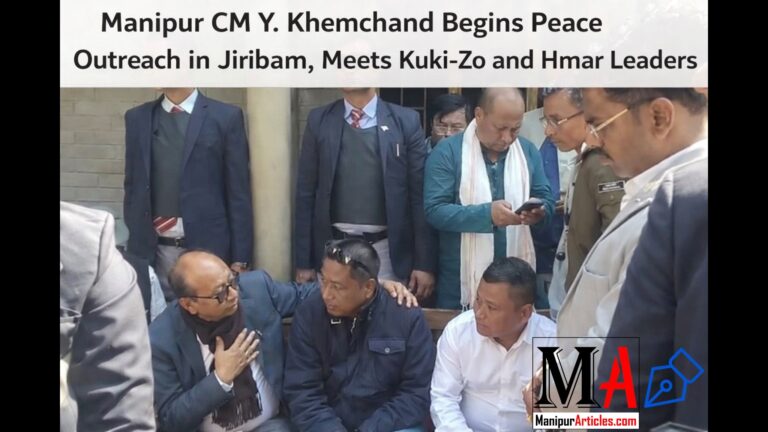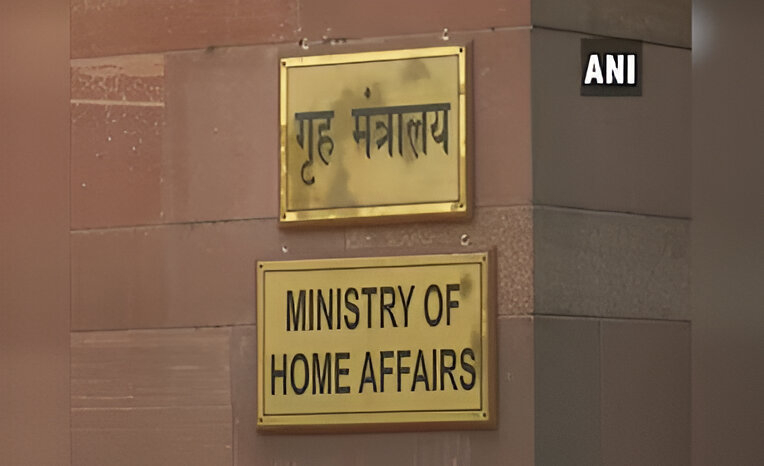Manipur Student Bodies Demand Repeal of AFSPA, Labeling It a ‘Black Law’
Article Summary
A coalition of six major student organizations in Manipur has vehemently called for the repeal of the Armed Forces (Special Powers) Act, 1958 (AFSPA), denouncing it as a “black law” that fosters fear and infringes upon human rights. This demand follows the Central Government’s decision to extend the Act in the state for another six months starting April 1, 2025. The student bodies argue that AFSPA has perpetuated a climate of impunity, leading to numerous alleged human rights violations, and insist on its immediate repeal to uphold democratic values and justice in the region.
The Controversial Extension of AFSPA in Manipur: A Deep Dive into the ‘Black Law’ Debate
Introduction: The Echoing Cries for Justice
Imagine living in a place where the very forces meant to protect you are feared, where the law grants them sweeping powers that can upend lives without accountability. This isn’t a dystopian novel—it’s the reality for many in Manipur under the Armed Forces (Special Powers) Act, 1958, commonly known as AFSPA. Recently, a coalition of student organizations has reignited the debate, demanding the repeal of what they term a “black law.” But what is AFSPA, and why does it evoke such strong sentiments? Let’s delve into the heart of the matter.
Understanding AFSPA: Origins and Provisions
To grasp the gravity of the situation, we need to understand what AFSPA entails. Enacted in 1958, AFSPA grants special powers to the Indian armed forces in areas declared as “disturbed.” These powers include:
- The authority to shoot to kill based on mere suspicion.
- The power to arrest without a warrant.
- Legal immunity for actions taken under the act, meaning no prosecution or legal proceedings can be initiated without the Central Government’s sanction.
Originally intended as a temporary measure to curb insurgency in the northeastern states, AFSPA has become a permanent fixture in regions like Manipur. But at what cost?
The Student Coalition’s Stand: Voices from the Ground
On April 9, 2025, six prominent student organizations in Manipur—All Manipur Students’ Union (AMSU), Manipuri Students’ Federation (MSF), AIMS, Democratic Students’ Association of Manipur (DESAM), Students’ Union of Kangleipak (SUK), and Kangleipak Students’ Association (KSA)—issued a joint statement condemning the extension of AFSPA. NorthEast Now
They labeled the act as repressive and undemocratic, citing numerous instances of alleged human rights violations, including “fake encounter killings,” enforced disappearances, and extrajudicial violence. Their assertion is clear: AFSPA has created an atmosphere where security forces operate with impunity, leading to a pervasive sense of fear among the populace.
Historical Context: A Legacy of Controversy
The discontent surrounding AFSPA isn’t new. Over the decades, Manipur has witnessed numerous protests and movements against the act. One of the most notable figures in this struggle is Irom Chanu Sharmila, who embarked on a 16-year hunger strike starting in 2000, demanding the repeal of AFSPA. Her protest was sparked by the “Malom Massacre,” where ten civilians were allegedly killed by Assam Rifles personnel. NorthEast Now+1Wikipedia+1Wikipedia+2Wikipedia+2Wikipedia+2Wikipedia
Such incidents have left deep scars on the collective psyche of the Manipuri people, fueling ongoing demands for justice and the act’s repeal.
Human Rights Concerns: The Core of the Opposition
At the heart of the opposition to AFSPA are grave human rights concerns. Critics argue that the act:
- Facilitates extrajudicial killings: There have been numerous allegations of security forces conducting “fake encounters,” leading to the deaths of individuals without due process.
- Encourages torture and sexual violence: Reports have documented instances where the act’s provisions have been misused, leading to heinous crimes against civilians, including women and children.
- Suppresses democratic freedoms: The overarching powers granted by AFSPA are seen as antithetical to the principles of democracy and justice.NorthEast Now
International bodies, including the United Nations, have expressed concern over AFSPA, urging its repeal and highlighting its incompatibility with international human rights standards. Wikipedia
Government’s Perspective: The Rationale Behind AFSPA
From the government’s standpoint, AFSPA is deemed necessary to combat insurgency and maintain national security. The Ministry of Home Affairs, in its notification on March 30, 2025, extended AFSPA across Manipur for another six months, citing the state’s classification as a “disturbed area.” NorthEast Now+1Wikipedia+1
Officials argue that the act provides the armed forces with the requisite authority to operate effectively in regions plagued by insurgent activities. They contend that the unique challenges posed by such areas necessitate extraordinary measures to ensure stability and order.Wikipedia
The Exclusion Clause: A Partial Relief?
It’s worth noting that the recent extension of AFSPA excludes specific areas under the jurisdiction of 12 police stations in Imphal and surrounding districts, including Lamphel, Singjamei, Thoubal, Bishnupur, and Kakching. NorthEast Now
While this exclusion might seem like a step towards addressing public concerns, critics argue that it’s merely a cosmetic change. The act remains in force in vast swathes of the state, and the fundamental issues associated with it persist.
Conclusion: A Pivotal Moment for Manipur’s Future
At the heart of this debate is a fundamental question: How can we ensure that our security frameworks protect us without compromising the values we hold dear? The outcry from Manipur’s student bodies is not merely a protest against a law—it is a passionate plea for the restoration of rights, dignity, and accountability in state governance.
The controversy surrounding AFSPA is complex, interwoven with historical, political, and social threads. However, it also carries the promise of transformation. By listening to the voices of the youth and engaging in meaningful reform, Manipur has the opportunity to forge a new path—one where security and human rights coexist harmoniously.
As we look forward, the discussion on AFSPA in Manipur represents more than a regional concern. It symbolizes the timeless struggle between state power and individual freedoms, between maintaining order and upholding justice. And in this struggle, every voice matters. The call to repeal or reform AFSPA is an invitation to reimagine how we can create a society that is as safe as it is just—a society where no law, no matter how well-intentioned, becomes a tool of oppression.
Let this moment in Manipur be a reminder that change is possible when communities rally together with passion and purpose. It is a call to action—for lawmakers, for security personnel, and for every citizen who believes that justice should never be sacrificed at the altar of security.
FAQs
- Q: Why is AFSPA considered a “black law” by critics?
A: Critics argue that AFSPA grants sweeping powers to security forces with minimal accountability, leading to human rights abuses such as fake encounters, arbitrary arrests, and extrajudicial killings, which is why they label it as a “black law.” - Q: What are the main reasons behind the student bodies’ demand for its repeal?
A: The student organizations demand its repeal because they believe AFSPA creates an atmosphere of fear, undermines democratic rights, and has led to numerous cases of human rights violations in Manipur. - Q: How has AFSPA impacted the lives of local communities in Manipur?
A: AFSPA has had a profound impact by fostering distrust in state institutions, contributing to personal tragedies through alleged extrajudicial activities, and hindering economic and social development due to a persistent climate of fear. - Q: What alternative measures are being suggested to replace or reform AFSPA?
A: Many suggest establishing a more accountable security framework that emphasizes enhanced oversight, community involvement, judicial accountability, and the integration of modern technology to ensure both effective security and protection of human rights. - Q: Can reforming AFSPA contribute to broader social and economic development in Manipur?
A: Yes, reforming the act could restore public trust, improve human rights records, attract responsible investment, and help build a more inclusive and secure environment that supports sustainable social and economic development.





